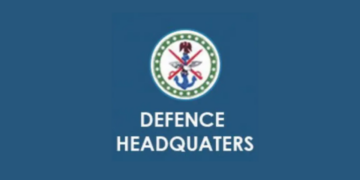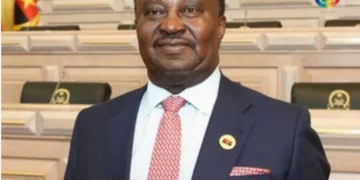Defence chiefs of member countries of the Economic Community of West African States (ECOWAS) have commenced deliberations on the proposed $2.607 billion budget for activating the subregion’s standby force.
This deliberation aims to activate the standby force of about 5,000 men to curb the growing scourge of terrorism, violent extremism and unconstitutional change of government in West Africa.
The West African Chiefs are also mindful of the cost implications of a 5,000-strong force and have, therefore, made alternative propositions for a budget of $481,459, 335 for a 1,650-strong standby force.
Nigerian minister of defence Mohammed Badaru Abubakar disclosed this at the opening of the region‘s Minister of Defence and Finance meeting on modalities for financing and equipping the deployment of the ECOWAS counter-terrorism force in Abuja on Thursday.
Therefore, it has become incumbent on the defence chiefs to decide on the best option based on the resources available.
Speaking on the essence of the meeting, Abubakar said the gathering is driven by the urgent need to consider the financing options in the memorandum to be presented by the ECOWAS Commission for deploying the proposed regional force.
He explained that the region is threatened by insecurity and grave humanitarian challenges. Badru said the standby force arrangement has the backing of the Authority of ECOWAS Heads of State and Government.
He said, “Our gathering here today is driven by the urgent need to consider the financing options in the memorandum presented by the ECOWAS Commission for deploying the proposed regional force. The financial implications of these proposals are significant.
“The estimated cost is $2,606,695,640 per year for a brigade of 5,000 men. The alternative proposal is for a brigade of 1,650 men, with an estimated annual cost of $481,459,335.These figures underscore the gravity of the task before us and the necessity of a robust and sustainable resource mobilization strategy. “lt is therefore imperative that we critically review the options considered.”
Explaining the current security situation in the region, the Minister said: „As you are all aware, our region is threatened by insecurity and grave humanitarian challenges. Terrorism and violent extremism have continued to threaten our collective existence. The cross-border free movement and activities of terrorist groups in the sub-region is deepening our internal security challenges.
“To address these challenges, the Authority of ECOWAS Heads of State and Government at its 62nd Ordinary Session held in Abuja on 4th December 2022 instructed the Committee of Chiefs of Defence Staff to urgently study and propose the options, modalities, financial and technical means for the urgent operationalisation of the ECOWAS Standby Force, including special kinetic operations to combat terrorism.
On his part, the president of the ECOWAS Commission, Omar Touray, lamented the damages caused to the region by terrorism, which include the large scale of Internally Displaced Persons, loss of territories and others.
He said, “a huge humanitarian crisis with millions of internally displaced persons and refugees.
“You will all recall that some member states have lost control of important parts of their territories to terrorist groups.
“According to the 2024 Global Terrorism Index, the epicentre of terrorism has shifted from the Middle East and North Africa into the sub-Saharan African region largely in the Sahel region.
“The Sahel is the most affected region within the Sahara, accounting for over half of all deaths from terrorism and 26 percent of attacks in 2023.
“Some of our member states have become countries with the highest impact from terrorism for the first time, with fatalities increasing by 68 percent and fatalities increasing by six,” he said.




